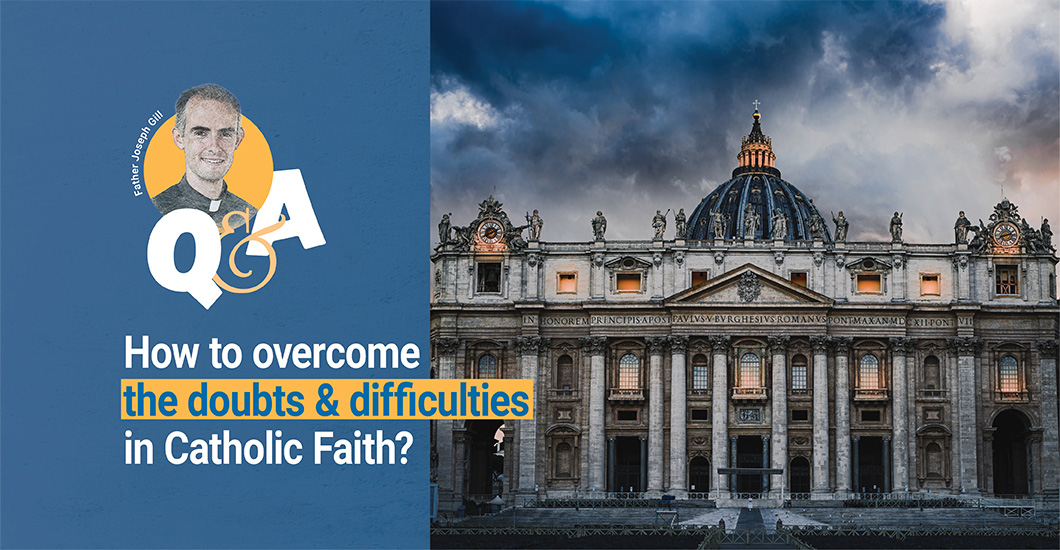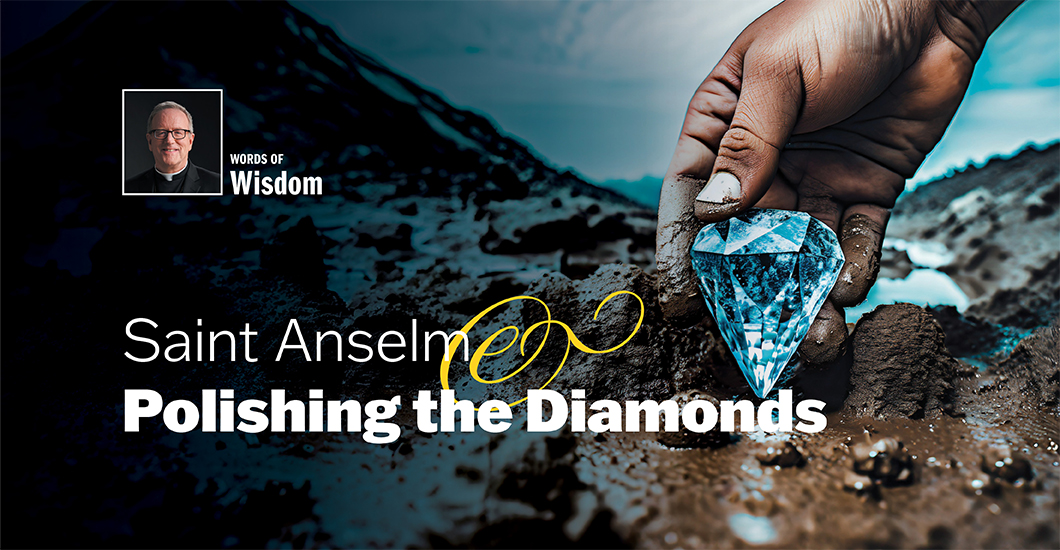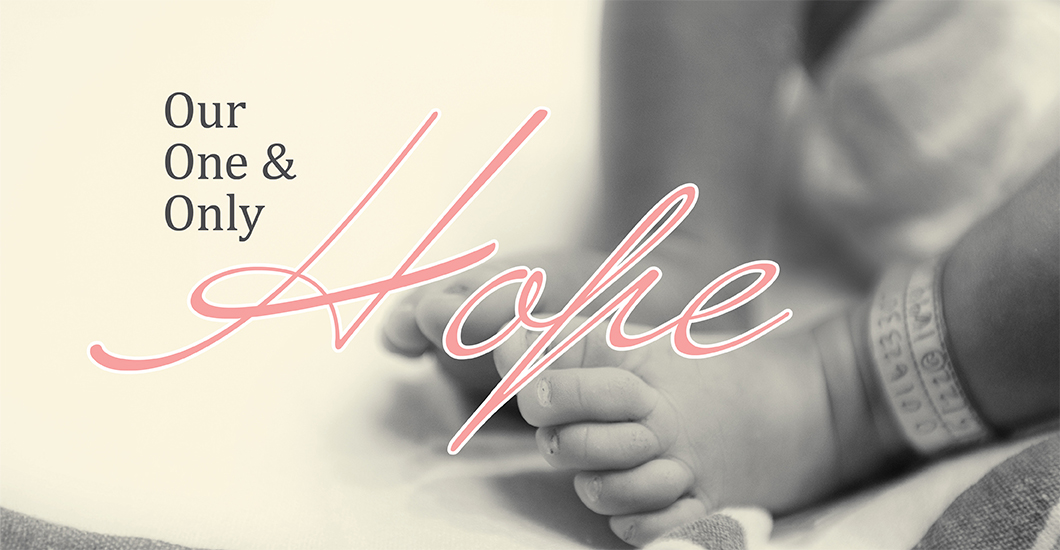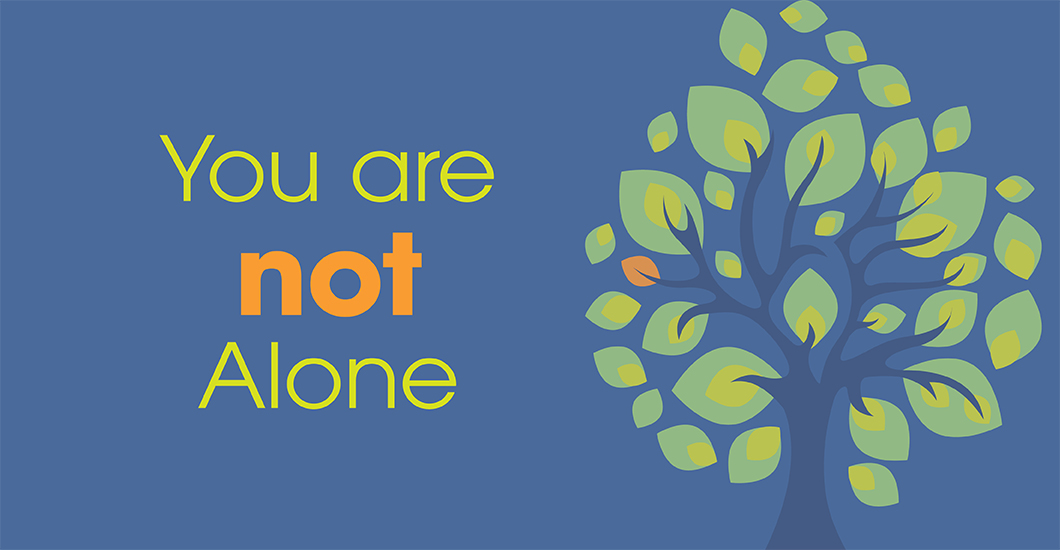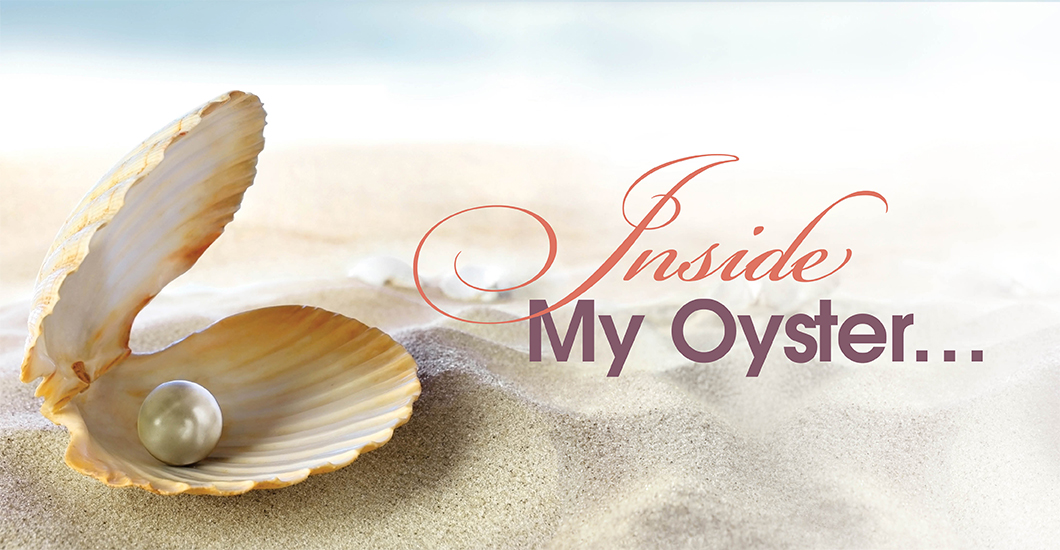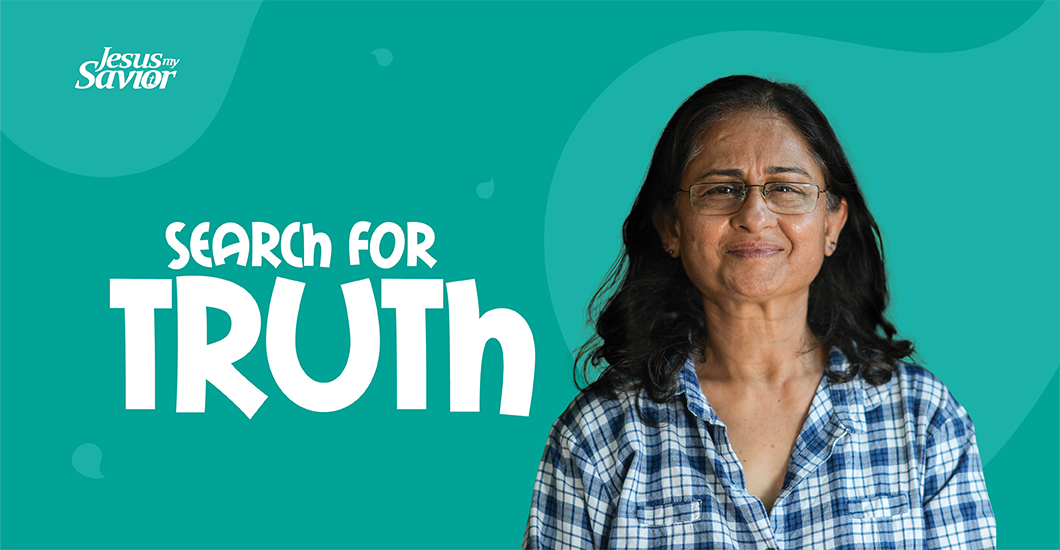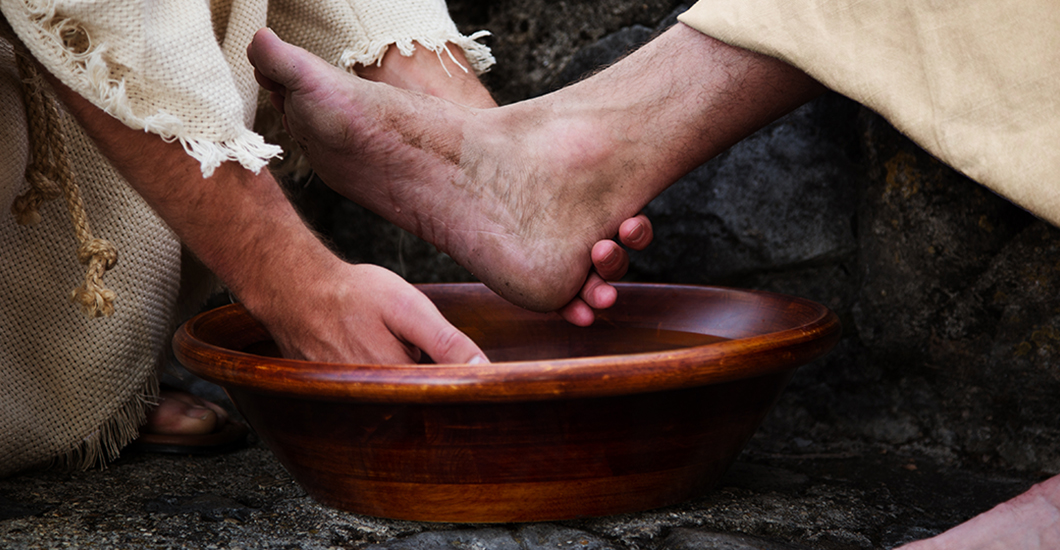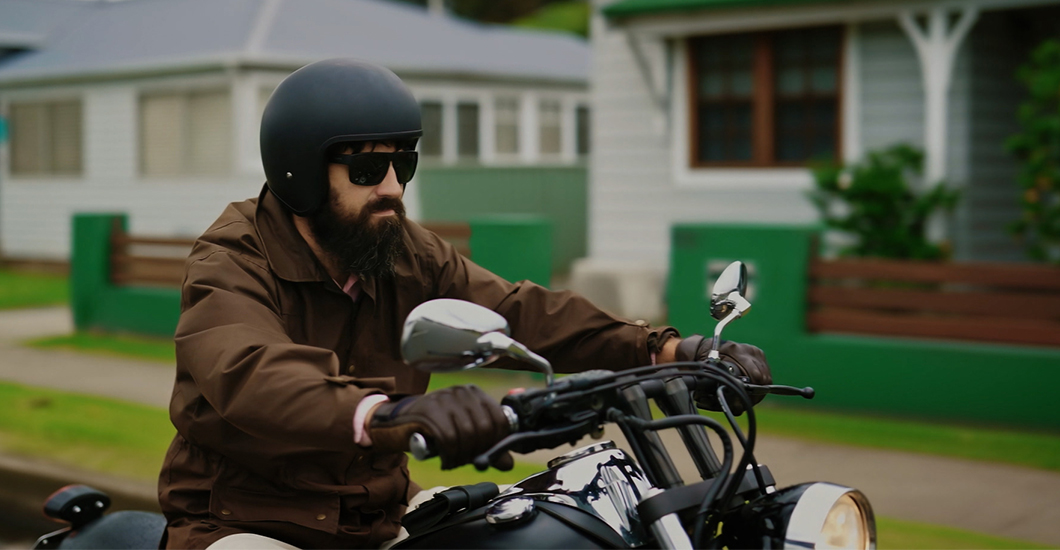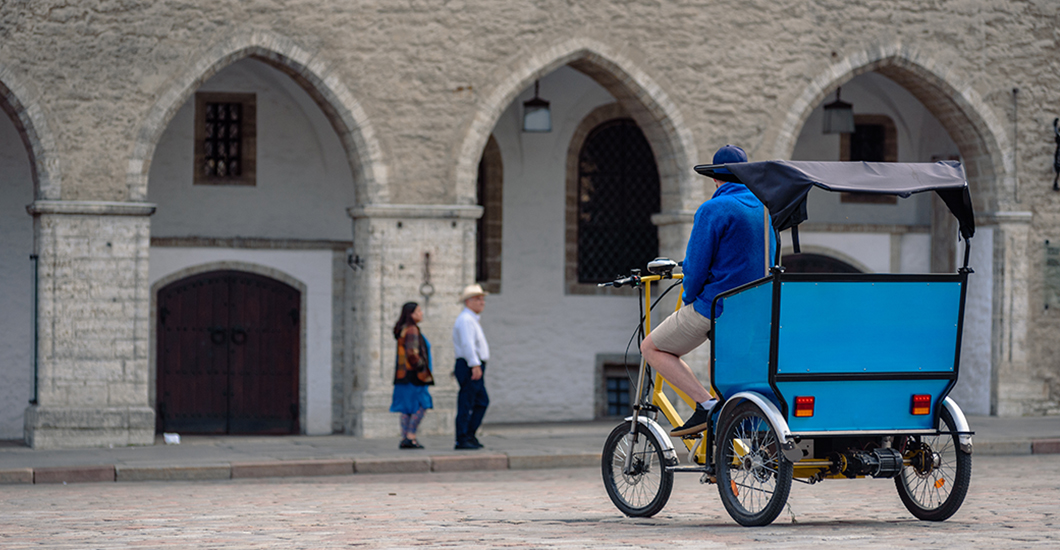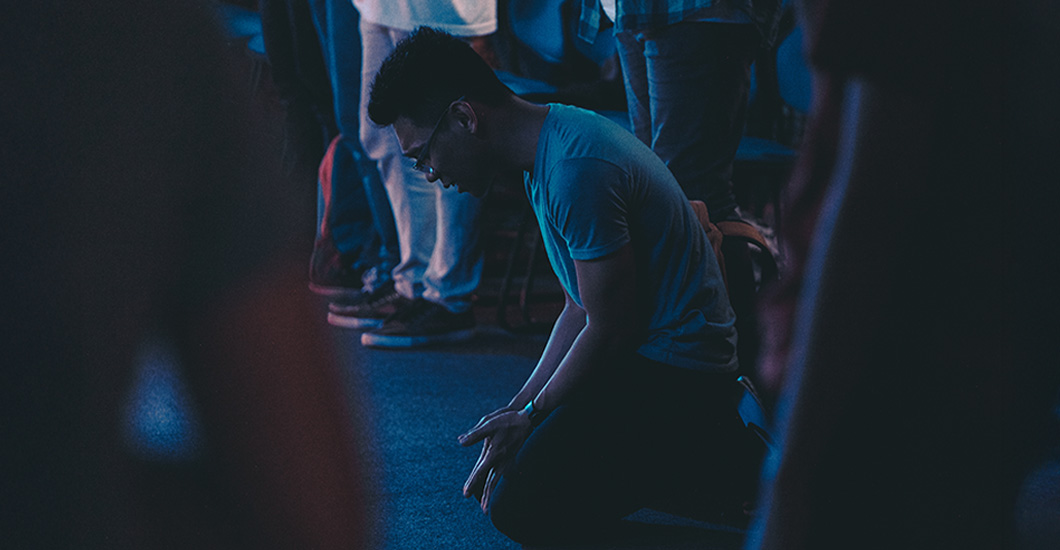Trending Articles
Q&A : How to overcome doubts & difficulties in Catholic Faith?
Q: I disagree with some of the teachings of the Catholic Church. Am I still a good Catholic if I don’t agree with everything?
A: The Church is more than just a human institution—it is both human and divine. It does not have any authority on its own to teach anything at all. Rather, the role of the Church is to teach faithfully what Christ taught on earth: to authentically interpret the Scriptures and to hand on the Apostolic Tradition that has come down to us from the Apostles themselves. The word “Tradition” comes from the Latin word “traditio”, meaning “to hand over.”
We make the distinction, however, between Tradition (with a Big T) and traditions (with a little t). Tradition (Big T) is the unchanging, everlasting teaching of the Church, which has its roots in the Apostles and Christ. Examples of this include the fact that only wheat bread and grape wine can be used for Holy Eucharist; only men can become priests; certain moral actions are always and everywhere wrong; etc. Little-t traditions are man-made traditions that are changeable, such as abstaining from meat on Fridays (this has changed in the course of the Church’s history), receiving Communion on the hand, etc. People of goodwill are allowed to have various opinions about pastoral practices, disciplines of the Church, and other traditions that are “little-t” traditions that came from human beings.
However, when it comes to Apostolic Tradition (big-T), to be a good Catholic means that we must accept it as coming from Christ through the Apostles.
Another distinction needs to be made, though: there is a difference between doubt and difficulty. A “difficulty” means that we struggle to understand why the Church teaches a specific thing, but a difficulty means that we accept it in humility and seek to find the answer. After all, faith is not blind! The medieval theologians had a phrase: Fides Quaerens Intellectum—Faith Seeking Understanding. We ought to ask questions and seek to understand the Faith we believe in!
By contrast, a doubt says, “Because I don’t understand, I will not believe!” While difficulties stem from humility, doubt stems from pride—we think that we need to understand everything before we believe it. But let’s be honest—are any of us able to understand mysteries like the Trinity? Do we really think we are wiser than Saint Augustine, Saint Thomas Aquinas, and all of the Saints and Mystics of the Catholic Church? Do we think that the constant 2,000-year-old Tradition, which was handed down from the Apostles, is somehow in error?
If we find a teaching that we grapple with, keep grappling—but do so with humility and recognize that our minds are limited and we often need to be taught! Seek, and you will find—read the Catechism or the Church Fathers, the Encyclicals of the Popes, or other solid Catholic materials. Seek out a holy priest to ask your questions. And never forget that everything the Church teaches is for your happiness! The Church’s teachings are not meant to make us miserable but rather to show us the way to genuine freedom and joy—which can only be found in a vibrant life of holiness in Jesus Christ!
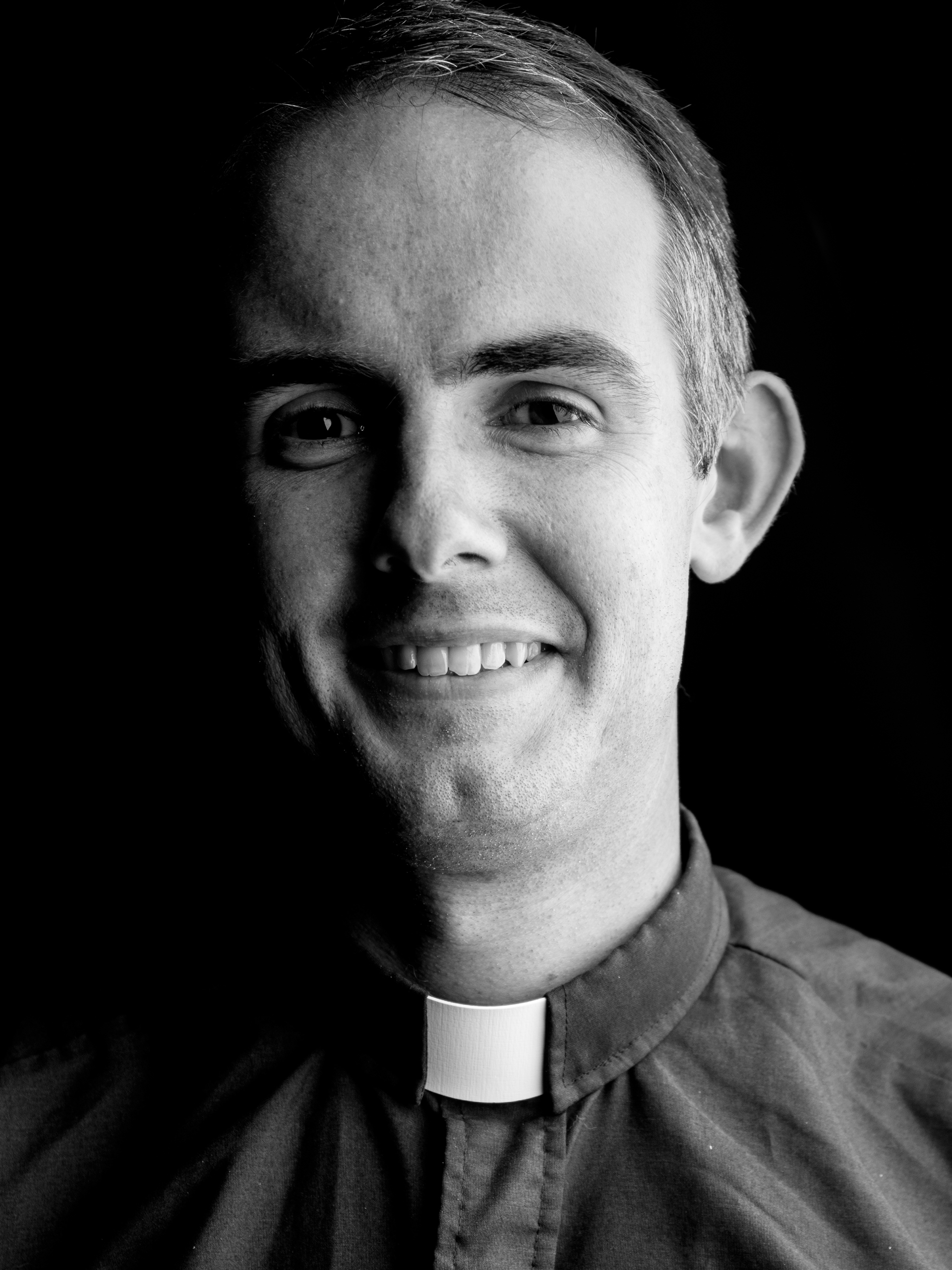
Father Joseph Gill is a high school chaplain and serves in parish ministry. He is a graduate from Franciscan University of Steubenville and Mount St. Mary’s Seminary. Father Gill has published several albums of Christian rock music (available on iTunes). His debut novel, “Days of Grace” is available on amazon.com.
Related Articles
Wherever you are and whatever you do, you are irrevocably called to this great mission in life. In the mid-eighties, Australian director Peter Weir made his first American film, a successful thriller, Witness, which starred Harrison Ford. The movie is about a young boy who sees the murder of an undercover police officer by corrupt co-workers, and he’s hidden away in an Amish community for protection. As the story unfolds, he recalls what happened by putting the pieces together and then, he tells the Ford character named John Book (note the Gospel symbolism). The movie contains the marks of a witness: one sees, recalls, and tells. Circling Back Jesus showed Himself to His innermost circle so that the truth of His Resurrection would reach everyone through them. He opened the minds of His disciples to the mystery of His Death and Resurrection saying: “You are witness to these things” (Luke 24:48). Having seen Him with their own eyes, the Apostles could not remain silent about this incredible experience. What’s true for the Apostles is also true for us because we are members of the Church, the mystical Body of Christ. Jesus commissioned his disciples to “Go, therefore, and make disciples of all nations, baptizing them in the name of the Father, and of the Son, and of the Holy Spirit.” (Matthew 28:19) As missionary disciples, we testify that Jesus is alive. The only way we can enthusiastically and steadfastly embrace this Mission is to see through the eyes of faith that Jesus is Risen, that He is alive, and present within and among us. That’s what a witness does. Circling back, how does one ‘see’ the Risen Christ? Jesus instructed us: “Unless a grain of wheat falls into the earth and dies, it remains alone; but if it dies, it bears much fruit.” (John 12:23-24) Put simply, if we really want to ‘see’ Jesus, if we want to know Him deeply and personally, and if we want to understand Him, we have to look to the grain of wheat that dies in the soil: in other words, we have to look to the Cross. The Sign of the Cross marks a radical shift from self-reference (Ego-drama) to being Christ-centered (Theo-drama). In itself, the Cross can only express love, service, and unreserved self-giving. It is only through sacrificial giving of the self for the praise and glory of God and the good of others that we can see Christ and enter Trinitarian Love. Only in this way can we be grafted onto the ‘Tree of Life’ and truly ‘see’ Jesus. Jesus is Life itself. And we are hard-wired to seek Life because we are made in God’s image. That’s why we’re drawn to Jesus—to ‘see’ Jesus, meet Him, know Him, and fall in love with Him. That’s the only way we can be effective witnesses to the Risen Christ. The Hidden Seed We too must respond with the witness of a life that is given in service, a life that is patterned after the Way of Jesus, which is a life of sacrificial self-giving for the good of others, recalling that the Lord came to us as servants. Practically speaking, how can we live such a radical life? Jesus told His disciples: “You will receive power when the Holy Spirit has come upon you; and you will be My witnesses.” (Acts 1:8) The Holy Spirit, just as He did at the first Pentecost, frees our hearts chained by fear. He overcomes our resistance to do our Father’s will, and He empowers us to give witness that Jesus is Risen, He is alive and He is present now and forever! How does the Holy Spirit do this? By renewing our hearts, pardoning our sins, and infusing us with the seven gifts that enable us to follow the Way of Jesus. It is only through the Cross of the hidden seed, ready to die, that we can truly ‘see’ Jesus and therefore give witness to Him. It is only through this intertwining of death and life that we can experience the joy and fruitfulness of a love that flows from the heart of the Risen Christ. It is only through the power of the Spirit that we reach the fullness of the Life He gifted us with. So, as we celebrate Pentecost, let us resolve by the gift of Faith to be witnesses of the Risen Lord and bring the Paschal gifts of joy and peace to the people we encounter. Alleluia!
By: Deacon Jim McFadden
MoreIf I hadn't gone through that darkness, I wouldn't be where I am today. My parents really wanted to have a family, but my mom wasn't able to get pregnant until she was 40. I was their miracle baby, born on her birthday, exactly one year after she completed a special Novena in petition for a child. I was gifted with a baby brother one year later. My family was nominally Catholic; we would go to Sunday Mass and receive the Sacraments, but there was nothing more. When I was about 11 or 12, my parents turned away from the Church and my faith life took an incredibly long pause. Writhing Agony Teenage years were packed with pressure, a lot of which I put on myself. I’d compare myself to other girls; I wasn't happy with my appearance. I was highly self-conscious and anxious. Though I excelled academically, I had a difficult time in school because I was very ambitious. I wanted to get ahead—show people that I could be successful and intelligent. We didn't have much money as a family, so I figured that studying well and getting a good job was going to solve it all. Instead, I got sadder and sadder. I would go for sports and celebrations, but I would wake up the next day and feel all empty. I had a few good friends, but they too had their own struggles. I remember trying to support them and ending up questioning the why of all the suffering around me. I was lost, and this sadness made me close-up and curl into myself. When I was about 15, I fell into the habit of self-harm; as I later realized, at that age, I didn't have the maturity or the ability to speak about what I was feeling. As pressure intensified, I gave in to suicidal thoughts, multiple times. During one hospitalization incident, one of the doctors saw me in such agony and said: “Do you believe in God? Do you believe in something after death?” I thought it was the strangest question to ask, but that night, I remembered reflecting on it. That's when I cried out to God for help: “God, if you exist, please help me. I want to live—I'd like to spend my life doing good, but I'm not even capable of loving myself. Whatever I do, everything ends in burnout if I don't have a meaning for all of it.” A Hand of Help I started to talk to Mother Mary, hoping that maybe she could understand and help me. Shortly after, my mother’s friend invited me to go on a pilgrimage to Međugorje. I didn’t really want to, but I accepted the invitation, more for curiosity to see a new country and nice weather. Surrounded by people who were praying the Rosary, fasting, walking up mountains, and going to Mass, I felt out of place but at the same time, I was also slightly intrigued. It was the time of the Catholic Youth Festival, and there were around 60,000 young people there, attending Mass and Adoration, praying the Rosary every day; not because they were forced to, but joyfully, from pure desire. I wondered if these people had perfect families which made it really easy for them to believe, clap, dance, and all of that. Truth be told, I craved that joy! While we were on the pilgrimage, we listened to the testimonies of girls and boys in a Cenacolo Community nearby, and that really changed things for me. In 1983, an Italian nun founded the Cenacolo Community to help young people whose lives had taken a wrong turn. Now, the organization can be found in many countries worldwide. I listened to the story of a girl from Scotland who had drug problems; she had also attempted to take her own life. I thought to myself: “If she can live that happily, if she can come out of all that pain and suffering and genuinely believe in God, maybe there's something in that for me as well.” Another great grace that I received when I was in Međugorje was that I went for confession for the first time in many years. I did not know what to expect but going to confession and finally saying out loud to God all of the things that had hurt me, all that I had done to hurt others and myself, was an enormous weight off my shoulders. I just felt peace, and I felt clean enough to make a fresh start. I came back touched and started University in Ireland, but sans adequate support, I ended up in the hospital again. Finding Way Realizing that I needed help, I went back to Italy and became a part of a Cenacolo Community. It wasn't easy. Everything was new—the language, prayer, different personalities, cultures—but there was a truth in it. Nobody was trying to convince me of anything; everyone was living their life in prayer, work, and true friendship, and it was healing them. They were living peace and joy, and it wasn't made up but real. I was with them all day, every day—I saw it. I wanted that! What really helped me those days was Adoration. I don't know how many times I just cried in front of the Blessed Sacrament. A therapist wasn’t speaking back to me, no one was trying to give me any medication, it just felt like I was being cleansed. Even in the community, there was nothing particularly special, except for God. Another thing that really helped me get out of my depression was that I started looking to serve others. As long as I kept looking at my own self, my own wounds and problems, I was just digging myself into a bigger hole. The community life forced me to come out of myself, look to others, and try to give them hope, the hope that I was finding in Christ. It helped me so much when other young people would come to the community, young girls who had problems similar to mine or sometimes even worse. I looked after them, tried to be an older sister, and sometimes even a mother. I started to think about what my mother would have experienced with me when I was hurting myself or when I was unhappy. There's often a certain sense of helplessness, but with faith, even when you can't help someone with your words, you can do so on your knees. I've seen the change in so many girls and in my own life from prayer. It's not something mystical or something I could explain theologically, but faithfulness to the Rosary, Prayer, and Sacraments has changed my life and so many other lives, and it has given us a new will to live. Passing it on I returned to Ireland to pursue a career in nursing; in fact, more than a career, I felt deeply that it's how I wanted to spend my life. I'm now living with young people, some of whom are like me when I was their age—struggling with self-harm, depression, anxiety, substance abuse, or impurity. I feel that it’s important to tell them what God did in my life, so sometimes during lunch, I tell them that I wouldn't really be able to do this job, see all the suffering and pain if I didn't believe that there was something more to life than just death after illness. People often tell me: “Oh, your name is Joy, it suits you so much; you're so happy and smiley.” I laugh inside: “If you only knew where that came from!” My joy is one that arose from suffering; that's why it's a true joy. It lasts even when there's pain. And I want the young people to have the same joy because it's not just mine, but it's a joy that comes from God, so everyone can also experience it. I just want to be able to share this infinite joy of God so that others can know that you can go through pain, misery, and difficulties and still come out of it, grateful and joyful to our Father.
By: Joy Byrne
MoreWe all wrestle with God at one point or another, but when do we really attain peace? Recently, a struggling friend told me: “I do not even know what to pray for.” She wanted to pray but was growing weary of asking for something that was not coming. I immediately thought of Saint Peter Julian Eymard’s Eucharistic Way of Prayer. He invites us to model our prayer time after the four ends of the Mass: Adoration, Thanksgiving, Atonement, and Petition. A Better Way Prayer is more than asking, yet there are times when our needs and worries about our loved ones are so pressing that we do nothing but ask, ask, plead, and then ask some more. We might say: “Jesus, I leave this in your hands,” but 30 seconds later, we grab it right out of His hands to explain why we need it again. We worry, fret, and lose sleep. We don’t stop asking long enough to hear what God might be trying to whisper to our weary hearts. We go around like this for a while, and God lets us. He waits for us to wear ourselves out, to realize that we are not asking Him to help us, but we are trying to tell Him how we think He needs to help us. When we grow tired of wrestling and finally surrender, we learn a better way to pray. In his letter to the Philippians, Saint Paul instructs us on how we should approach our petitions to God: “Have no anxiety at all, but in everything, by prayer and petition, with thanksgiving, make your requests known to God. Then the peace of God that surpasses all understanding will guard your hearts and minds in Christ Jesus.” (4:6-7) Combat the Lies Why do we worry? Why do we get anxious? Because, like Saint Peter, who stopped looking at Jesus and began to sink (Matthew 14:22-33), we too lose sight of the Truth and choose to listen to the lies. At the root of every anxious thought lies a big lie—that God will not take care of me, that whatever problem worries me now is bigger than God, that God will abandon me and forget me…that I don’t have a loving Father after all. How do we combat these lies? With the TRUTH. “We must simplify the work of our mind by a simple and calm view of God’s truths,” reminds St. Peter Julian Eymard. What is the truth? I like Saint Mother Teresa’s answer: “Humility is truth.” The Catechism tells us that “humility is the foundation of prayer.” Prayer is raising our hearts and minds to God. It is a conversation, a relationship. I can’t be in a relationship with someone I do not know. When we begin our prayer with humility, we acknowledge the truth of Who God is and of who we are. We recognize that, on our own, we are nothing but sin and misery but that God has made us his children and that in Him, we can do all things (Philippians 4:13). It is that humility, that truth, that brings us to first adoration, then thanksgiving, then repentance, and finally to petition. It is the natural progression of one who is completely dependent on God. So when we don’t know what to say to God, let us bless Him and praise His name. Let us think of all the blessings and thank Him for all He has done for us. This will help us trust that this same God, who has always been with us, is still here today and is always for us through good times and difficult times.
By: Ivonne J. Hernandez
MoreThere is a regrettable interpretation of the Cross that has, unfortunately, infected the minds of many Christians. This is the view that the bloody sacrifice of the Son on the cross was “satisfying” to the Father, an appeasement of a God infinitely angry at sinful humanity. In this reading, the crucified Jesus is like a child hurled into the fiery mouth of a pagan divinity in order to assuage its wrath. But what ultimately refutes this twisted theology is the well-known passage from John’s Gospel: “God so loved the world, that he sent his only Son, that all who believe in him might have eternal life.”(3:16) John reveals that it is not out of anger or vengeance or in a desire for retribution that the Father sends the Son, but precisely out of love. God the Father is not some pathetic divinity whose bruised personal honor needs to be restored; rather, God is a parent who burns with compassion for His children who have wandered into danger. Does the Father hate sinners? No, but he hates sin. Does God harbor indignation at the unjust? No, but God despises injustice. Thus, God sends his Son, not gleefully to see him suffer, but compassionately to set things right. Saint Anselm, the great medieval theologian who is often unfairly blamed for the cruel theology of satisfaction, was eminently clear on this score. We sinners are like diamonds that have fallen into the muck. Made in the image of God, we have soiled ourselves through violence and hatred. God, claimed Anselm, could have simply pronounced a word of forgiveness from heaven, but this would not have solved the problem. It would not have restored the diamonds to their original brilliance. Instead, in his passion to reestablish the beauty of creation, God came down into the muck of sin and death, brought the diamonds up, and then polished them off. In so doing, of course, God had to get dirty. This sinking into the dirt—this divine solidarity with the lost—is the “sacrifice” which the Son makes to the infinite pleasure of the Father. It is the sacrifice expressive, not of anger or vengeance, but of compassion. Jesus said that any disciple of His must be willing to take up his cross and follow the Master. If God is self-forgetting love even to the point of death, then we must be such love. If God is willing to break open his own heart, then we must be willing to break open our hearts for others. The cross, in short, must become the very structure of the Christian life.
By: Bishop Robert Barron
MoreI am still in awe of Reverend Sebastian’s account of a miraculous escape from deadly danger. Surely you would be too, as I share it here in his own words. It was the coolest autumn night of October 1987, nearly 3 AM, and I had an hour left before boarding my flight to London. I decided to head to the airport lounge and grab a cup of hot coffee, which helped me shake off my sleepiness. I had taken some medication for a slight fever, but the effect was already wearing off. So, I took another one, and as I boarded the flight, I requested the air hostess, who introduced herself as Anne, for a free row in the middle so that I could get some rest during the long flight. My priestly collar must have touched her because when the seatbelt sign was turned off, Anne approached me and led me three rows back to where four seats were unoccupied. I then arranged the seats like a small couch and settled in. Disturbing News My comfortable slumber was broken by the erratic movements of the aircraft. My eyes shot open; the cabin was dimly lit, and most passengers were either asleep or glued to the screens in front of them. I couldn't help but notice the swift movements of the cabin crew as they hurried along the narrow walkways between the rows of seats. Assuming that someone was ill and needing assistance, I asked Anne, who was passing by my seat, what was happening. "It's just turbulence, Father. Everything is under control," she replied before quickly moving forward. However, her panicked eyes suggested otherwise. Unable to sleep, I walked towards the back of the plane to request a cup of tea. A crew member ordered me to return to my seat but promised to bring me the tea later. I sensed that something was amiss. As I patiently waited for my tea, a male crew member approached me. "Father Sebastian, there is a fire on one of the engines, and we haven't been able to contain it yet. We have a full tank of fuel, and we've been flying for almost two hours. If the fire reaches the fuel tank, the plane could explode at any time," he paused before looking me directly in the eyes. My body froze with shock. "The captain has a special request—please pray for all 298 souls on board and for the fire to be extinguished. Both captains know that we have a priest on board and have requested that I convey this message to you," he finished. Taking his hands in mine, I replied: "Please tell the captains to remain courageous, for Jesus and Mother Mary will protect us from this dangerous situation, just like how Jesus saved His disciples from the stormy sea. There is nothing to worry about, and the Holy Spirit will take control of the situation from this point forward. They will be guided wisely by Him." I heard a weary voice in front of me asking if the flight was going to explode. It was Sophie, a woman in her late years whom I had met on the plane earlier. She had overheard some of our conversation and had become hysterical. Crew members warned her not to make a scene; she calmed down a bit and sat next to me, confessing her sins to me 30,000 feet high. Holding On However, I had great faith in Mother Mary, who had helped me overcome similar situations before. I took my rosary and began to pray, closing my eyes and reciting it with utmost devotion. Mid-flight, I was informed that the captain was trying to make an emergency landing in a non-busy airport and that we needed to hold on for another seven minutes. Eventually, as the situation was still not under control, the captain informed the passengers to prepare themselves for an emergency landing. John, the crew member who had spoken to me earlier, informed me that the fire had reached gate 6, leaving only one more gate till the engine. I silently kept on praying for the safety of everyone on the flight. As the situation continued without improvement, I closed my eyes and continued praying, finding strength and courage in my faith. When I opened my eyes, the plane had landed safely at the airport, and the passengers were applauding. Relief at Last! “My dear friends, this is Rodrigo, your captain from the deck!” He paused for a moment and then continued. “We were in an extremely dangerous situation in the past hours, and we are good now! A special thanks to the Almighty God and Father Sebastian. He was praying for all of us and gave all of us great strength and courage to overcome this situation and…” he paused again, “we did!” John and Anne walked with me as we were greeted by the crew and dignitaries at the airport terminal. I was told that a replacement aircraft would arrive soon and that all passengers would be transferred to the new plane in an hour. After the harrowing experience on the flight, I couldn’t help but reflect on the power of prayer and the importance of trusting God in any situation. I remembered the words from Mark 4:35-41, where Jesus calmed a storm on the sea and asked his disciples: "Why are you so afraid? Have you still no faith?" As we boarded the new flight, I felt a renewed sense of gratitude for the miraculous escape and a stronger faith in God's protection. ***** Father Sebastian has since shared his story with many people and encouraged them to put their trust in God during difficult times. He reminds them that with faith and prayer, they, too, can overcome any storm and find peace in the midst of chaos.
By: Shaju Chittilappilly
MoreI was going through my old prayer journal, wherein I had written prayer requests. To my amazement, every single one of them was answered! Anyone taking a cursory look at the news these days may find themselves despairing, wondering where God is, and needing hope. I know I have found myself in this position on certain days. We feel out of control, and we wonder what we can do about all of the horrible things we see. I want to share with you a story. A few years ago, I started keeping a journal of prayer requests of the people and things I was praying for. I often prayed a Rosary for these things, as I still do today for prayer petitions. One day, I came across an old journal of my written prayer requests. I began to peruse the pages of what I had written long ago. I was astounded. Each prayer had been answered—maybe not always in ways I thought they would be answered, but they were answered. These were no small prayers. “Dear Lord, please help my aunt stop drinking alcohol. Dear Lord, please help my infertile friend have children. Dear Lord, please heal my friend from cancer.” As I scrolled down the page, I realized that every single prayer had been answered. Many in a bigger and better way than I imagined. There were a couple that, at first glance, I thought had not been answered. One friend who needed healing from cancer had passed away, but then I remembered that she had confession and anointing of the sick before she died. She died peacefully in the mercy of God, surrounded by His healing grace. But other than that, the majority of the prayers were answered here in this world. Many prayer requests had seemed like impossible mountains, but they had been moved. God’s grace takes our prayers and our perseverance in prayer, and He moves all things toward good. In the quiet of my prayer, I heard a whisper: “I have been working all these things throughout time. I have been writing these stories. Trust me.” I believe we are in perilous times. But I also believe that we are made for these times. You may say to me: “Your personal prayer requests being answered seems great, but nations are at war.” And my response to that is, again, nothing is impossible with God, not even stopping war by using our prayers. I remember it happening in the past. We should believe that God can act that big right now. For those not old enough to remember, there was a scary time when it looked like a blood bath was coming. But through the power of the Rosary, things changed. I was in 8th grade, and I remember hearing about all the turmoil in the Philippines. Ferdinand Marcos was the dictator of that country at the time. It was shaping up to become a bloody battle with a few people already dead. A staunch critic of Marcos, Benigno Aquino, was assassinated. But it didn’t become a bloody battle. Cardinal Jaime Sin of Manila had asked people to pray. They went out in front of the military, praying the Rosary aloud. They stood in front of tanks praying. And then, a miraculous thing happened. The military laid down their weapons. Even the secular media, the Chicago Tribune, reported how “Guns fell to Rosaries.” The revolution was over, and the glory of God was seen. Don’t stop believing in miracles. Expect them. And pray the Rosary every chance you get. Lord knows our world needs it.
By: Susan Skinner
MoreEcstatic over the good news of a much-awaited pregnancy, their world turned upside down during the 12th-week routine ultrasound. Our first-born Mary Grace was growing up to be a beautiful child. Our family and friends had been actively praying for us to have another baby, so we were overjoyed to learn about the pregnancy! The genetic testing returned normal results, and we decided to keep the gender a lovely surprise. When I went for the routine 12th-week ultrasound, the technician showed me the side profile of the baby and then quickly turned the screen away from me. They took my daughter out, and I immediately knew something was wrong. I thought: “Maybe the baby has some sort of heart problem or defect, but it is alright. God can fix anything, and we can have surgery.” But being a doctor, I prayed: “Please God, don’t let it be anencephaly.” Since I had had a glimpse of the ultrasound, I felt confident it would be something else. As the doctor came into the room, I asked: “Please tell me the baby is alive.” With a solemn face, she said: “Yes, the baby does have a heartbeat, but it doesn’t look good.” I started crying and called my husband on Facetime. It was what I feared the most—our baby has anencephaly, one of the severe defects a baby can have in utero where the skull does not develop appropriately—and the doctor told me the fetus wouldn’t live long. It was heartbreaking. This precious child that we had been waiting for so many years was not going to live! I thought about how excited my older daughter was. In our daily family prayer, she used to say: “Jesus, please let me have a baby brother or sister.” I kept saying in my mind: “Lord, you can heal, you can heal the baby.” My husband immediately came down. Trying hard to keep a straight face, I told my daughter that I was crying tears of joy. What else could I say? The doctor said we could terminate the pregnancy. I said, “Absolutely no way. I am going to carry the baby until he/she lives. If it’s going to be 40 weeks, it’s 40 weeks.” She did warn me that I would likely not make it that long, and in case the baby dies in the womb, there was the possibility of me getting a severe blood infection. I also needed frequent checkups as fluid build-up in my uterus could be very dangerous. I told her that I was ready to face anything. Thankfully, I wasn’t pressured further, even on the following visits. They knew that I had made my decision! Destined for Hope We came home and spent time praying and crying together. I called my sister, who was an OBGYN resident. She called a lot of friends, especially in Jesus Youth, and started a Zoom Novena that very night. We just said to our daughter that the baby has “a little bit of a booboo, but it’s okay.” We didn’t tell our parents or in-laws; my sister was to get married in a month, and we didn’t want the wedding to be affected. We also had this thought that they wouldn’t handle it with the same strength we felt. The first few days, many people talked to me, helping me trust in God’s providence and believe that He doesn’t do anything that’s not good for us. I felt immense peace. I thought about Mother Mary—the joy of receiving the good news at Annunciation and the later sorrow at knowing that He was going to die. We decided, that day, to open the card from the blood tests that revealed the gender because by then, we wanted to pray for the baby with a name. We named her Evangeline Hope, meaning ‘the bearer of good news’ because, for us, she still radiated the hope of Christ’s love and mercy. Not once did we consider aborting her because she was such good news, not only for us but for all our well-wishers—a child who would evangelize the world in many ways. I joined an Anencephaly Support group, which helped me immensely in my journey. I met many people, even atheists, who deeply regretted their decision to abort their babies. I was brought in contact with ladies who sewed angel gowns from donated wedding gowns and professional photographers who volunteered to document the birth through beautiful photos. We did a gender reveal at our sister’s wedding but still didn’t tell anyone that the baby was sick. We just wanted to honor and celebrate her little life. My sister and friends also organized a beautiful baby shower (more like a celebration of life), and instead of presents, everyone wrote letters to her for us to read after the delivery. Perpetual Adorer I carried her until the 37th week. Even after a complicated delivery, including a uterine wall rupture, Evangeline was not born alive. But somehow, I remember feeling a deep sense of Heavenly peace. She was welcomed with so much love, dignity, and honor. A priest and her Godparents were waiting to meet Evangeline. There in the hospital room, we had a beautiful time of prayer, praise, and worship. We had beautiful dresses for her. We read the letters that everybody wrote to her. We wanted to treat her with more dignity and honor than a ‘normal’ child. We cried because we missed her presence, and also because of joy as she was with Jesus now. In that hospital room, we were thinking, “Wow, I can’t wait to get to Heaven. Let’s do our best to be there with all the Saints.” Two days later, we had a ‘celebration of life’ for her with everybody wearing white. The Mass was celebrated by four priests, and we had three seminarians and a beautiful choir honoring our precious baby. Evangeline was buried in the Angels section for babies in the cemetery, which we still visit often. Although she isn’t here on earth, she is very much a part of our lives. I feel closer to Jesus because I see just how much God loves me and how He chose me to bear her. I feel honored. She is a perpetual adorer for our family to bring us to sainthood in a way no other situation could ever bring us to. It was sheer grace from God and full acceptance of His will that gave us the strength to go through this. When we accept God’s will, He showers the graces that we need to go through any given situation. All we have to do is abandon ourselves to His providence. Raising Saints Every unborn child is precious; healthy or sick, they are still gifts from God. We should open our hearts to love these children made in the image of Christ, who are in my view more precious than a “normal” child. Taking care of them is like taking care of the wounded Christ. It’s an honor to have a child with disabilities or special needs because caring for them will help us reach a deeper state of sanctity than accomplishing anything else in life. If we can see these sick unborn children as gifts—pure souls—it wouldn’t even feel like a burden. You will be raising within you, a Saint who will be seated beside all the angels and Saints. Our youngest baby boy Gabriel was born last October. As we awaited him, we used to pray that even if he is diagnosed with something, we would still have the grace to receive him with open hearts and arms. Thanks be to God, it was His will that Gabriel be born a beautiful healthy baby; and an added thanks to his sister’s intercession from heaven too. All life is a precious gift, and we are not the authors of life. We must always remember that God gives, and God takes. Blessed be the name of the Lord!
By: Dr. Hima Pius
MoreIn times of trouble, have you ever thought ‘if only I had help at hand,’ not fully knowing that you do really have a personal cohort to help you out? My daughter’s been asking me why I don’t look like the typical Pole if I am 100% Polish. I never had a good answer until this week, when I learned that some of my ancestors are Goral highlanders. Goral highlanders live in the mountains along the southern border of Poland. They are known for their tenacity, love of freedom, and distinct dress, culture, and music. At this moment, a particular Goral folk song keeps playing over and over in my heart, so much so that I shared with my husband that it is, in fact, calling me back to my home country. Learning that I have Goral ancestry has indeed made my heart soar! The Search for Roots I do believe that there is some desire within each of us to get in touch with our roots. That explains the many genealogy sites and DNA-testing businesses that have popped up recently. Why is that? Perhaps it stems from a need to know that we are part of something greater than ourselves. We long for meaning and connection with those who have gone before us. Discovering our ancestry shows we’re part of a much deeper story. Not only that, but knowing our ancestral roots gives us a sense of identity and solidarity. We all came from somewhere, we belong somewhere, and we are on a journey together. Reflecting on this made me realize how important it is to discover our spiritual heritage, not just our physical one. After all, we humans are body and soul, flesh and spirit. We would greatly benefit from getting to know the Saints who’ve gone before us. Not only should we learn their stories, but we should also get acquainted with them. Finding Connection I have to admit, I haven’t always been very good at the ask-for-the-intercession-of-a-saint practice. This is certainly a new addition to my prayer routine. What woke me up to this reality was this advice from Saint Philip Neri: “The best medicine against spiritual dryness is to place ourselves like beggars in the presence of God and the Saints. And to go like a beggar from one to another and to ask for spiritual alms with the same insistence as a poor man on the street would ask for alms.” The first step is to get to know who the Saints are. There are plenty of good resources online. Another way is to read the Bible. There are powerful intercessors in both the Old and New Testaments, and you may relate to one more than the other. Plus, there are countless books on the Saints and their writings. Pray for guidance, and God will lead you to your personal cohort of intercessors. For instance, I have asked Saint David the King for help with my music ministry. Saint Joseph is my go-to when interceding for my husband and for job discernment. I ask for help from Saint John Paul II, Saint Peter, and Saint Pius X when I feel called to pray for the Church. I pray for moms through the intercession of Saint Anne and Saint Monica. When praying for vocations, I sometimes call on Saint Therese and Saint Padre Pio. The list goes on. Blessed Carlo Acutis is my go-to for tech problems. Saint Jacinta and Saint Francisco teach me about prayer and how to offer up sacrifices better. Saint John the Evangelist helps me grow in contemplation. And I would be negligent to not mention that I often ask for the intercession of my grandparents. They prayed for me while they were on earth, and I know they are praying for me in eternal life. But my all-time favorite intercessor has always been our dearly beloved Blessed Mother. Just a Prayer Away Who we spend time with matters. It shapes us into who we become. There truly is a “cloud of witnesses” surrounding us that we are connected to in a real way (Hebrews 12:1). Let us strive to get to know them better. We can send up simple, heart-felt prayers like, “Saint ____, I would like to get to know you better. Please help me.” We are not meant to do-it-alone in this faith journey. We are being saved as a people group, as the Body of Christ. By staying connected to the Saints, we find both a compass that provides direction and concrete help to travel safely to our Heavenly homeland. May the Holy Spirit help us get in touch with our spiritual roots so that we can grow into Saints and spend eternity as one glorious family of God!
By: Denise Jasek
MoreThey say that pearls are formed around an intrusion, an unwanted foreign object that finds its way into its deeply protected shell. Once a foreign object enters the oyster shell, it secretes layers of the same luminous substance that is used to create the innermost part of its own shell. It continues to do so in concentric layers, eventually forming a shiny round pearl. Oysters are not much to look at, and producing a pearl is not an oyster’s ultimate purpose. Yet, in the course of survival, as a device of self-protection, the oyster builds itself around an unexpected intrusion to bring forth beauty. Amid the peace of a smooth-going life, when unwanted intrusions enter my heart and soul and threaten to eat me from within, does the oyster give me a lesson worth trying out? When failures, insurmountable barriers, any and every burden that was not mine in the first place end up within me by chance or by choice, can I secrete around it a thin layer of my innermost being? I have found that if I try hard enough to point myself to The Giver of Eternal Love, my innermost being will be slowly filled with His being. As I gaze at the Eucharist for endless hours with nothing but gratitude, as I receive The Host into my soul with the greatest desire, as I sit down at His feet and listen with trust, that self-giving Love will slowly fill my soul. Henceforth, with every little piece of disturbance that enters and threatens to disturb my peace, this Love within will cover it, one layer at a time. Eventually, precious pearls of saintly luminosity will be pried forth by The Expert Hand and adorn many lives with it.
By: Maria Teres Sebastian
MoreFrom being a faithful Muslim praying to Allah three times a day, fasting, almsgiving, and doing Namaz, to being baptized in the Pope’s Private Chapel, Munira’s journey has twists and turns that might surprise you! My image of Allah was of a stern master who would punish my slightest error. If I wanted anything, I had to buy Allah’s favor with fasting and prayer. I always had this fear that if I were to do anything wrong, I would be punished. The First Seed A cousin of mine had a near-death experience, and he told me that he experienced a vision of plunging through a dark tunnel, at the end of which he saw a bright light and two people standing there—Jesus and Mary. I was confused; shouldn’t he have seen the prophet Mohammed or Imam Ali? Since he felt so sure that it was Jesus and Mary, we asked our imam for an explanation. He replied that Isa (Jesus) is also a great prophet, so when we die, he comes to escort our souls. His answer didn’t satisfy me, but it began my search for the truth about Jesus. The Search Despite having lots of Christian friends, I didn’t know where to start. They invited me to a Novena to Our Lady of Perpetual Succour, and I started attending the novenas regularly, listening carefully to the homilies explaining the word of God. Although I didn’t understand much, I believe that it was Mary who understood and eventually led me to the truth. In a series of dreams through which the Lord would speak to me over the years, I saw a finger pointing out a man dressed as a shepherd while a voice called me by name, saying, “Munira, follow Him.” I knew the shepherd was Jesus, so I asked who was speaking. He replied: “He and I are one.” I wanted to follow Him, but I didn’t know how. Do You Believe in Angels? We had a friend whose daughter seemed to be possessed. They were so desperate that they even asked me for a solution. As a Muslim, I told her that we have these Babas they could go to. Two months later, I was astounded when I saw her again. Instead of a thin, puny ghost of a figure I had seen earlier, she had become a healthy, radiant, robust teenager. They told me that a priest, Father Rufus, had delivered her in the name of Jesus. After several refusals, when we finally accepted their invitation to join them at Mass with Father Rufus, he prayed over me and asked me to read a verse from the Bible; I felt such peace that there was no turning back. He spoke about The Man on the Cross—who died for Muslims, Hindus, and all mankind throughout the world. It awakened a deep desire to know more about Jesus, and I felt that God had sent him in answer to my prayer to know the Truth. When I came home, I opened the Bible for the first time and started reading it with interest. Father Rufus advised me to seek out a prayer group, but I didn’t know how, so I started praying to Jesus on my own. At one point, I was alternately reading the Bible and the Quran, and I asked Him: “Lord, what is the Truth? If you are the Truth, then give me the desire to only read the Bible.” From then on, I was led to open only the Bible. When a friend invited me to a prayer group, I initially said no, but she insisted, and the third time, I had to give in. The second time I went, I took my sister along. It turned out to be life-changing for both of us. When the preacher spoke, he said that he’d received a message, “There are two sisters here who have come searching for the Truth. Now their search has ended.” As we attended the weekly prayer meetings, I slowly started to understand The Word, and I realized that I had to do two things—forgive and repent. My family was intrigued when they noticed a visible change in me, so they started coming too. When my dad learned about the importance of the Rosary, he surprisingly suggested that we start praying it together at home. From then on, we, a Muslim family, would kneel down and pray the Rosary every day. No End to Wonders My growing love for Jesus prompted me to join a pilgrimage to the Holy Land. Before we went, a voice in a dream told me that although I held fear and anger deep within me, it would soon be released. When I shared this dream with my sister, wondering what it could all mean, she advised me to ask the Holy Spirit. I was puzzled because I didn’t really know who the Holy Spirit was. That would soon change in an amazing way. When we visited the Church of Saint Peter (where he had that dream showing him all the animals that God now permitted them to eat (Acts 10:11-16)), the Church doors were closed because we were late. Father Rufus rang the bell, but nobody answered. After about 20 minutes, he said, “Let us just pray outside the Church,” but I suddenly felt a voice within me saying: “Munira, you go ring the bell.” With the permission of Father Rufus, I rang the bell. Within seconds, those huge doors opened. The priest had been sitting right beside them, but he only heard the bell when I rang it. Father Rufus exclaimed: “The Gentiles will receive the Holy Spirit.” I was the Gentile! In Jerusalem, we visited the Upper Room where the Last Supper and the Descent of the Holy Spirit had taken place. As we were praising God, we heard a roar of thunder, a wind blew into the room, and I was blessed with the gift of tongues. I couldn’t believe it! He baptized me in the Holy Spirit in the same place where Mother Mary and the apostles received the Holy Spirit. Even our Jewish tour guide was astonished. He fell to his knees and prayed with us. The Sprout Keeps Growing When I returned home, I was longing to be baptized, but my mom said: “See Munira, we follow Jesus, we believe in Jesus, we love Jesus, but conversion...I don’t think we should do it. You know there will be many repercussions from our community.” But there was a deep desire within me to receive the Lord, especially after a dream in which He asked me to attend the Eucharist every day. I remember imploring the Lord like the Canaanite woman: “You fed her the crumbs from Your table, treat me like her and make it possible for me to attend the Eucharist.” Shortly afterward, while I was walking with my dad, we unexpectedly arrived at a church where the Eucharistic celebration was just beginning. After attending the Mass, my dad said: “Let us come here every day.” I feel that my road to baptism started there. The Unexpected Gift My sister and I decided to join the prayer group on a trip to Rome and Medjugorje. Sister Hazel, who was organizing it, casually asked me if I would like to get baptized in Rome. I wanted a quiet baptism, but the Lord had other plans. She spoke to the Bishop, who got us a five-minute appointment with a Cardinal that lasted two and a half hours; the Cardinal said he would take care of all arrangements to be baptized in Rome. So we were baptized in the Pope’s Private Chapel by the Cardinal. I took on the name Fatima and my sister took on the name Maria. We joyfully celebrated our baptismal lunch with many cardinals, priests, and religious over there. I just felt that right through it all, the Lord was telling us: “O taste and see that the Lord is good; happy are those who take refuge in him” (Psalm 34:8). Soon came the Cross of Calvary. Our family experienced a financial crisis that people in our community blamed on our conversion to Christianity. Astonishingly, the rest of my family went the other way. Instead of turning their backs on us and our faith, they also asked for baptism. Amid adversity and opposition, they found strength and courage, and hope in Jesus. Dad expressed it well, “There is no Christianity without a Cross.” Today, we continue to encourage each other in our faith and share it with others whenever we have the opportunity. When I was speaking to my aunt about my conversion experience, she asked me why I addressed God as “Father.” God, for her, is Allah. I told her that I call Him Father because He has invited me to be His beloved child. I rejoice to have a loving relationship with Him Who loves me so much that He sent His Son to wash me clean from all my sins and reveal the promise of eternal life. After I shared my remarkable experiences, I asked her if she would still follow Allah if she were in my place. She had no answer.
By: Munira Millwala
MoreLatest Articles
This is the best paradigm of master-slave dynamics the world has ever seen… In the early ‘60s, an emerging blue-rock band, The Rolling Stones, let loose a misogynistic song, Under My Thumb, that illustrates a certain social dynamic. We hear: Under my thumb The girl who once had me down Under my thumb The girl who once pushed me around … It’s down to me, yes it is The way she does just what she’s told, Down to me, the change has come She’s under my thumb, Ah, ah, say it’s alright. As offensive as these lyrics are, they contain a paradigm of the dominant consciousness of a society of how people relate to each other in the political, economic, and social domains. 19th-century German philosopher Friedrich Hegel explained this dynamic with his notion of the master-slave dialectic, which said that one’s sense of self-worth is directed towards someone who is perceived as unequal to oneself. Like The Rolling Stones, Hegel is talking about very dark social relationships in which the ego seeks to be in control, to dominate others to obtain one’s needs and to obtain privilege and status. So, the world is divided into insiders and outsiders— those at the top and those at the bottom. Or, as Bruce Springsteen once sang: “Down here, it’s just winners and losers, and Don’t get caught on the wrong side of that line” (Atlantic City from Nebraska). For those who are on the winning side, they want to keep things the way they are because the status quo works to their advantage. So, the master-slave dialectic seems to work at all levels. Along God’s Way Now, even before Hegel et al., the authors of the Old Testament were concerned about this problem because their central story was the Exodus Experience, which was a movement from oppression to liberation in which God identifies with the oppressed and resists the oppressor. God, working through Moses, brings the people out of servitude and guides them to the Promised Land—a state of justice and human flourishing. In doing so, God overcomes the master-slave dialectic, which is the central work of the God of Israel. Now, fast-forward 1200 years to Yeshua, Jesus of Nazareth, around 33 A.D., who appears in the hills of Galilee. On the lips of this young man who spoke as one having authority was the message that the Kingdom of God was at hand. That is, God’s way of ordering things is coming about, and this Kingdom is perfectly personified in Jesus. What God has in mind in how we organize ourselves radically differs from the master-slave dialectic. What does Jesus have in mind when he proclaims and lives in the Kingdom of God? The best source is the Sermon of the Mount in Matthew’s Gospel, chapters 5-7. In the Kingdom, we wouldn’t be hungry and thirsty for domination, but we would hunger and thirst for righteousness. Rather than clawing for the highest position, we should embrace mercy, tenderness, and compassion. Not stuck in the dreadful lex talionis: “An eye for an eye, a tooth for a tooth” ethic, but if someone slaps you on the right cheek, show him the other. If someone takes your outer garment, give him your shirt as well. And love not just your neighbor but your enemy as well. With that background in mind, Jesus will put into action His teachings in a very strange episode during the Passover Meal by washing the feet of his disciples (cf. John 13:1-20). Jesus will radically overturn the master-slave dynamic by becoming the slave, the servant. At the Last Supper, He takes off His outer garment and puts a towel around His waist in the posture of a slave. Then He proceeds to do something that is so low that only the lowest slave would be expected to do. He begins to wash their feet. Peter was so shocked that he protested and said to Him, “You will never wash my feet.” Jesus answered, “Unless I wash you, you have no share with Me.”(John 13:8) How To Be Kingdom People? Just as the Israelites passed through the Red Sea, the Washing of the Feet is a radical new beginning: Peter, do you want to be a member of the Kingdom of God that I proclaim? Do you want to participate in this new way of being? If so, you must pass through the waters of washing the feet of others and see yourself humbly serving them. The movement of the Exodus Experience to the Washing of the Feet leads us to the Eucharist. Knowing how challenging it will be to become Kingdom people, Jesus chose to be always with us. We hear in Paul’s first letter to the Corinthians: “On the night when He was betrayed, took a loaf of bread, and when He had given thanks, He broke it and said, ‘This is My body that is for you. Do this in remembrance of Me.’ In the same way, He took the cup also, after supper, saying, ‘This cup is the new covenant in My blood. Do this, as often as you drink it, in remembrance of Me.’”(1 Corinthians 11:23-25) This is the climax of Jesus’ public ministry, which will express the fullness of the Kingdom of God. What does Jesus do when He sums up what His life and ministry are all about? He gives himself away! “This is My body”—for a first-century Jew, that meant this is me; this is my person. “This is My blood”—everything I am is poured out for you. The Washing of the Feet is where the master becomes the slave. It challenges us to make our lives one of self-giving generosity as a template for all our relationships. Giving away His body and blood is our initiation into the dynamics of the Kingdom of God, which is why the Eucharist is the ‘fount and summit’ of our worship and life. How can we contrive to undermine the dynamics of the master-slave dialectic and give ourselves away?
By: Deacon Jim McFadden
MoreAndrew Byron unfolds the story of the profound experience he had when he called upon the name of Jesus! In December 1996, just two days before Christmas, my life took a devastating turn. My best friend, with whom I had grown up and who was about to become the youngest pilot instructor in Australia, died in a plane crash right in front of his family. I can still remember the feeling when my father informed me about my friend's passing. Although it didn't sink in at first, I remember how I broke down at the funeral. Soon, I became grief-riddled, depressed, and lost all hope. I tried to self-medicate with drugs and alcohol, which only led to greater depression, and I became very suicidal. Finally, I felt that the only way to escape the misery in life was to leave home. The U-turn I decided to leave for Queensland, miles away from my home in Tom Price, hoping that I would get a job, probably picking fruit. So, after school, instead of getting off at my stop, I continued my journey and got off at the highway. While hitchhiking along the Pacific Highway, an older man stopped to give me a ride and urged me to call home and inform my parents about my whereabouts. I called home and reached my father, who asked, "What are you doing? Why are you up there?" I said: "I'm leaving home," and he replied that I was breaking his heart. I was so consumed by drugs that I couldn’t grasp how leaving home impacted my parents. When I got back in the car with him, he persuaded me to visit my aunt's house at Old Bar beach. After dropping me off, he left. Although it was cold, I walked to search for my aunt's house. Suddenly, a car pulled over and offered me a ride. They invited me to stay at their home for the night. I was deeply touched by their gesture and chose to join them. At their home, they had a carton of beer, and we began drinking. They said I could live with them if I would sell drugs for them. I agreed and started partying with more drugs and alcohol. But soon, a realization struck me that I had a loving family. I also realized I had just sunk into a worse situation. When I told them that I was going back home, they said I couldn't leave, and if I did, they would have to kill me. They began torturing me with frying pans and steel-capped boots. They stripped me, tied my hands to my ankles, and blindfolded me with my shirt. I was dragged into a car boot. I could feel that my jaw was dislocated, my nose was broken, and I was in tremendous pain. I'd lost a lot of blood. They pulled over the car, and two men dragged me out of the boot. I was pretending to be dead, trying to stay stiff, but as they pulled me out, my elbow bumped into the boot of the car, and they realized I was still alive. They placed a large kitchen knife against my back and started hitting it with a rock. As the knife went up my spine, I felt this was my death; I was dying. They thought I was dead and threw me down the cliff. I was in extreme pain. Though blindfolded, I managed to climb over a big log but ended up in the water. The water was very cold, and as I put my head in, I realized I shouldn't give up. I could feel my breath getting shorter, my body shutting down, and a great darkness coming over me. I knew that I was going to hell. That was a terrifying moment! I cried out to God. He saved me! At that moment, I was enveloped in a sense of peace—an overwhelming warmth. So, I laid in that creek in the cold water in absolute joy, which I've never experienced since. Whenever life gives me trouble now, I always remember that moment. Before I Passed Out When the sun rose, I began climbing the cliff by grabbing saplings. I fell down several times, but eventually, I reached the top of the road. I asked God what to do, and He said: "Go right." So I walked. I don't know how far it was, but I found a Ranger's Cottage. No one was home, so I grabbed a brick and broke the window. I rang Triple Zero*, took a hot bath, and went to the fridge, where there was one beer. I had no idea where I was. I rang Triple Zero again. Looking out the window, I saw the car that had dropped me off the previous night driving past very slowly as if about to turn into the driveway. At that same moment, a police car and an ambulance came up the driveway, causing the car to speed off. The ambulance crew assessed me and said they couldn't transport me by road and would have to get a helicopter, considering my condition. The Westpac rescue helicopter landed, and the pilot got out and asked: "Do you mind if I pray with you?" He laid his hand on my head, and I passed out. It was February 27, 1998; My entire life changed that day. I woke up in the hospital and soon learned that the knife had gone up my spine and came to rest, touching the sheath of the nerve that controls breathing. A surgeon from Sydney had to fly in to remove the knife surgically. Finding My Way Overcoming the greatest chapter in my life, I moved to Sydney in 1999, where I attended the Youth Mission. While being there, I experienced a profound conversion and truly fell in love with Jesus. I laid everything down for Jesus, and again, I was filled with peace. I now realize that whenever any difficult or traumatic situation or circumstance comes up in my life, I recall the thought I had while lying at the bottom of the cliff—just look up and understand that God already knows; He goes before us and has every situation under control. I have to trust Him, and it's a beautiful thing. Later, I moved to Melbourne, where I connected with the Disciples of Jesus. This Covenant Community has been very good for formation. Through the Ministries, I learned the importance of God's armor. In the community, brothers in Christ can lean on one another, share their experiences, and walk the journey together. When I had my addictions to drugs and alcohol, I couldn't escape their grasp over my life. I tried many things, including cutting off friendships and isolating myself, but nothing seemed to work. The only thing that could free me from the addiction was Jesus—trusting Him and allowing Him to enter my life. I love Jesus very dearly. For anyone suffering from addictions, I would say that Jesus is the way. *Triple Zero (000) is the primary national emergency telephone number in Australia.
By: Andrew Byron
MoreNo trip lasts forever, but how do we convince a child that it is time to let go? I lived in Charlotte, North Carolina, for a while, and out of all the jobs available, I found myself pedicabbing. That's right, I was tasked with bicycling people around the city. Of course, I was in the best shape of my life. I carried numerous people, covering upwards of 100 miles on a weekly basis. I gave rides to celebrities, political figures, conference goers, and the nightlife thrill-seekers. My most memorable fare was an unexpected family just leaving a restaurant. As chance would dictate, I was in the exact vicinity searching for my next customer, and I yelled: "Hey, y'all need a ride?" These two parents were doting on their seven or eight-year-old child. He was celebrating his birthday, and when he saw me, the kid immediately started tugging on his father's arm and pleaded: "Pappa, Momma! Can I please take a ride? Please? Please? Pleeeeeeease?" They both looked at him endearingly and said: "Of course. It's your special day!" Without asking the price, the father asked if I could give them a nice long tour of Uptown Charlotte. Hence, I was tasked with showing them all the spots I could think of that would interest the youngster. We weaved in and out of traffic; I showed them parks, beautifully lit buildings, waterfalls, monuments, and statues…We even stopped to listen to troubadours and watch street artists and magicians. No doubt, this child was having the time of his life. The gentle summer breeze rushed through our hair, and I, too, felt a certain joy knowing I was making this kid's birthday extra special. Hopefully, it would last a lifetime—it certainly has for me. A Life Lesson The trip came to an end, and when it was time to disembark, the kid immediately started to whine and plead: "No! Pappa! I'm having so much fun. I don't want it to end. Please, let's continue!" I definitely hear the hint of a tantrum as I start to see tears well up in this kid's eyes. I simultaneously see the father beginning to worry. After such a wonderful evening and giving his son all he asked for, would he also be forced to play the ‘bad guy?’ I am now convinced the Holy Spirit inspired me to intervene, not because I was trying to give grand advice or bestow memorable life lessons. In fact, my motivation was that I saw an opportunity to be well-tipped for all my efforts. I now see that what was said paved the way for me to learn a much more important lesson—a lesson God is trying to teach us all. Turning around in my seat and smiling, I said to the kid: "Thank you so much for sharing your special day with me! I was privileged to make this day so special for you. I can honestly say I had just as much fun giving the ride as you probably had taking it. But what makes this experience so special is that it can't last forever. If all great things never ended, this experience would no longer be extraordinary; there would be nothing to compare to this exciting activity. But now that it's over, I hope you take this experience and treasure it forever." The father smiled at me and said: "Thank you." He was undoubtedly relieved that his son no longer showed signs of throwing a tantrum. In fact, the kid did something I thought was even more shocking. He grabbed his father's hand, looked up at him, and said: "You're right, Pappa! It's time to go home. Thank you." Twelve years later, I realized that what I said to the kid was nothing compared to the lesson I was to learn from the response he gave his father. The world provides an array of thrills, experiences, and distractions. Some bring joy, while others just give the illusion of such. I had a great life as defined by the masses: I ended up going on to have a promising career, and I traveled the world and continued to enjoy worldly (often sinful) things. In short, I refused to get off the perpetual exciting ride. But even when I was most estranged from the faith, the Holy Spirit was still working, paving the way for when finally God said: "It's time to disembark." I now realize that, like this kid, my response needs to be to grab God's hand and say: " You're right Pappa! It's time to go home."
By: Aleksie Ivanovich
MoreUntold graces and miracles are available to those who practice surrender. I frequently tell my friends about ‘surrender,’ but I receive this question in return: "What does surrendering look like in reality? Am I supposed to ignore the dirty diaper?" The short answer is no! Clean the baby and toss the diaper. Each moment in our lives is a gift from God. Every second is pregnant with possibilities. I can surrender my exhaustion, frustration, joy, or confusion by giving God access. In doing so, I am letting Him determine solutions. I use my freedom to yield to the One with a better plan. How do I know it is better? Because He is the Alpha and the Omega. Although we each have various challenges, the same principles apply. The answer lies in our perspective. Essential to surrender is how we look at any given situation. For instance, I can either go: "Why does the baby always wait until I am ready to leave the house to dirty her diapers?” or instead, be more positive: "That was a close call. I'm happy it happened at home." The latter isn't always my first thought, but I'm making progress. Assuming that various people and situations are specifically intended to frustrate me makes me a target. Pay attention to your perspective. How do you react when something or someone upsets you? Do you feel personally attacked? A positive way to combat that is to flip it around. God has a different plan for me today. Shifting from a target mentality to a recipient of God's grace is all in one’s perspective. Crosses of Our Own Making Being a recipient allows me to receive invitations from God throughout the day. I can freely agree or refuse to be His instrument in any situation. It's letting God's Will be accomplished through my yes. In this, I imitate the Master and grow in virtue. Can you begin to see how surrender works? How much of the anxiety and fear that we experience is self-imposed? I once read that many of the crosses we carry are of our own making. Talk about self-defeating. Thinking that we are obliged to handle everything independently is one way we have unnecessary crosses. Do I see it as another dreary diaper change? Or do I see it as an honor to be able to help my daughter, who cannot help herself? We can practice surrender in small and inconsequential ways, thus growing in holiness. The other segment of surrendering comes from allowing yourself to become a gift from God. Our yes to the Lord through our surrender will enable Him to position us as His instruments in each circumstance. I cannot begin to share how often this happens to me. In giving my yes, I know without a doubt that God will provide. And boy, does He! I am continually surprised by the words coming from my mouth (or written on the page). Repeatedly, it is spot-on. God knows. I do not. The One Who Knows Surrendering frees me from having to solve every problem or carry its weight. I am free to be used by the Almighty in His redemptive work. It allows God to be Father, Savior, Healer, and Sanctifier in and through me. In this way, I become a gift to someone else. It's a win-win! In this little way, I get to participate in his salvific work while He does all the heavy lifting. Those people and that situation are precisely where I am supposed to be because, where I am, there is the Trinity for whom nothing is impossible. "No action, however insignificant, if accepted and performed as coming from God's hand, and in conformity with His will, is anything other than redemptive and a sharing in the great work of salvation begun by Christ's Passion." (He Leadeth Me by Fr. Walter Ciszek) Who is the perfect example of surrender? Our Blessed Mother. She showed us how to surrender in her fiat: “Here am I, the servant of the Lord; let it be with me according to your word.” (Luke 1:38) At the Cross, she was not angry, spiteful, cursing, or asking why, nor was she a passive doormat. Instead, Mary simply stood there, giving her fiat in quiet surrender to God. It is a process of letting go, not into thin air, but into the hands of our Father. When I look back on my own experiences, in those moments of helplessness when life threw me on the asphalt, crushed me on the ice, or shattered the silence as each son shared yet another loss of their little one…Knowing why didn't make it any better. These are the times of surrender and fiats. It is not quitting, rolling over, or giving up. It is handling our problems in confidence and surrendering them to the One who knows the next perfect step. Let it be, Lord, I trust in you. Lord, I give You every moment of my day and access to everything in my life. I welcome Your solutions. I am precisely where You want me to be right now. Pray the Surrender Novena: shalomtidings.org/prayer_categories/novenas-to-our-lord
By: Barbara Lishko
More